Why don't Christians observe Yom Kippur?
Carol has left a comment on my last blog entry and mentioned the fact that today our Jewish brothers and sisters are celebrating Yom Kippur. Her comment was slightly off-topic, but -as always when Carol has something to say- very thought provoking. I decided to write a special blog post about this subject and I invite you all to join the discussion if you have something to add.
This is what Carol wrote:
Today is Yom Kippur, the Day of Atonement set out in Leviticus and elsewhere. Traditionally this marks the day Moses received the second set of the Ten Commandments and marks the point at which the Israelites were exonerated for making the Golden Calf (hence the “Atonement”). I’ve always been curious as to why Christians don’t note this observance. I’m sure it has something to do with the idea that we are “free of the Law” (which is in itself somewhat suspect). I’m not set up to observe it; I have to work today, as does Doug. However, I am going to give some thought today to what I have to atone for.
This is what Jews for Jesus have to say about Yom Kippur:
Yom Kippur can be somewhat of a conundrum to Jewish believers in Y'shua. Do we fast and confess our sins like the rest of the Jewish community or do we rejoice in the knowledge that we're forgiven in Messiah? Many Jewish believers view Yom Kippur as a time for identification with our Jewish people, introspection for ourselves and intercession for loved ones, knowing all the while that Jesus is the One that makes us at one with God.
And this is my personal reflection on Carol's comment:
For me, as a publisher, the second set of the Ten Commandments sounds like the first REPRINT ever. But in this case the reprint was not by popular demand but by human disobedience and divine interference. We have a merciful God, a God of second chances!
I've been reading Paul's letter to the Galatians this week - in different translations. I like to read Eugene Peterson's the Message and Rob Lacey's Street Bible - because the old words have a strong impact if you read them in contemporary language. I am not suggesting that we all should replace 'official' bible translations by modern paraphrases, but sometimes there seems to be too much distance between the ancient sacred texts and us, modern readers in 2007. We must also read a letter in one go - not in fragments - if we want to get the whole message...
Paul stressed that we should NOT go back to the old testament rules and regulations, because Jesus has liberated us from the law. He didn't abandon the law, but he fulfilled it by his perfect life, perfect sacrifice and glorious resurrection. Yes indeed, we are FREE of the law. Mind you, God's standard was not replaced, but raised by Jesus! Read Matthew 5 if you want to know the rules and regulations of the new contract. This is not an updated version of the Law, this is the new edition - revealed to us by Jesus who shows us how merciful and loving his Father is!
I think that we can still learn a lot from our Jewish heritage as believers (descendants of Abraham), but there is always this risk of falling back into old patterns, sticking to old rules and trying to add something to what Jesus has completed for us. This is why many Christians stay away from old testament rules and celebrations, I suppose. But in the new testament we can also read that the history of the people of Israel is an example for us (often an example of how NOT to act in disobedience - like with the golden calf).
Read 1 Corinthians 10 if you want to know more about this.
Our day of atonement was the day that Jesus died for all sins of all people of all times. With such a celebration on Good Friday there is no need for a Christian version of Yom Kippur, just like Easter has come to succeed Pesach.
Such a high priest meets our need—one who is holy, blameless, pure, set apart from sinners, exalted above the heavens. Unlike the other high priests, he does not need to offer sacrifices day after day, first for his own sins, and then for the sins of the people. He sacrificed for their sins once for all when he offered himself. For the law appoints as high priests men who are weak; but the oath, which came after the law, appointed the Son, who has been made perfect forever. Hebrews 7:26-28
This is what Paul teaches us in Romans 3:21-31
"But now a righteousness from God, apart from law, has been made known, to which the Law and the Prophets testify. This righteousness from God comes through faith in Jesus Christ to all who believe. There is no difference, for all have sinned and fall short of the glory of God, and are justified freely by his grace through the redemption that came by Christ Jesus. God presented him as a sacrifice of atonement, through faith in his blood. He did this to demonstrate his justice, because in his forbearance he had left the sins committed beforehand unpunished— he did it to demonstrate his justice at the present time, so as to be just and the one who justifies those who have faith in Jesus.
Where, then, is boasting? It is excluded. On what principle? On that of observing the law? No, but on that of faith. For we maintain that a man is justified by faith apart from observing the law. Is God the God of Jews only? Is he not the God of Gentiles too? Yes, of Gentiles too, since there is only one God, who will justify the circumcised by faith and the uncircumcised through that same faith. Do we, then, nullify the law by this faith? Not at all! Rather, we uphold the law."
By the way, don't forget to have a look at Dry Bone's Yom Kippur confession. Yes, may you all be inscribed and sealed in the Book of Life! Blessings to all children of faith, all sons and daughters of Abraham.
And if you have some time left, check out this blog entry by Jews for Jesus blogger Chad Elliott.





.jpg)




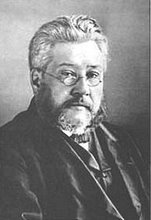





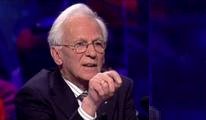
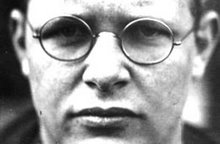
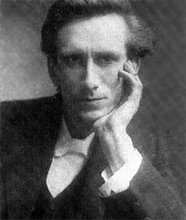


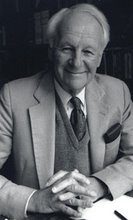


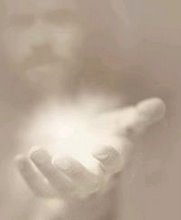








7 comments:
Interesting post. Funny enough I have a Jewish believer in Israel who is a guest blogger on my site. Guess what the post was about, Yom Yippur.
I certainly agree that Jesus completed the law, therefore the law does not provide a way to please GOD. I do find in my own life a need for the sacred, this is where ritual can be so powerful for me. I started keeping traditional Sabbath for that very reason. I then found the wonderful blessing of having a day just set aside for rest. Sadly going to church on Sunday is more like work for me. We wake up early, everyone gets ready, we drive off to church, get in a traffic jam, join the 5000+ people trekking into church, listen to a fast paced worship and sermon, then we are out on the road and back in traffic.
This for me is very personal. But I have to admit that contemporary Christianity does not really do it for me anymore. Most evangelical churches where I am at are trying to become more like the communities around them. So certain rituals do have a powerful effect.
I have learned a great deal about the bible from studying the history of the land. The feasts of Israel are such a great learning tool. That should not surprise us. They were all meant as sign posts pointing to Messiah. Maybe I will start keeping Yom Kippur, not to atone for sin, but to be a reminder of what Jesus did?
Mike, I agree with you wholeheartedly about the modern evangelical church; however, I am not sure the answer (if there is an answer) lies in a return to Rabbinic Judaism.
Oddly enough, my husband and I both ended up fasting this Yom Kippur, unbeknownst to each other and for totally different reasons.
I recognize that the Jewish festivals are not required. I think that in the wrong context they could lead the Christian away from faith.
Passover and Pentecost are indisputably linked in their Old and New Testament forms. However, I think it’s stretching to find a prophetic corollary between other Festivals and prophecy, as some people do.
I agree that Yom Kippur is similar in mood to Good Friday. (It’s a pity that so many American evangelical churches dismiss Good Friday as a “Catholic thing” because it is one of the most profound days in the church calendar.) However, it’s hard to find an analogue meaning to Yom Kippur in Christianity because our atonement is NOT earned.
Sukkot—the Feast of Tabernacles—starts this year on September 26. It is a festival which deserves Christian attention, especially in light of John 7, which is specifically set within it. During Jesus’ lifetime, this festival included a water libation ceremony (Nisuch HaMayim) which culminated in the pouring of water and wine on the altar—it is likely that Jesus’ “streams of living water” statement in John 7:37-38 alludes indirectly to this practice.
But the major point of Sukkot is that God provides for us, and resides with us. I’m a person for whom that particular message is very important.
PS Paul: I never wished to imply that we should observe Yom Kippur in the same way as our Jewish brethren, merely that we should consider its passing. To me that is something like the difference between attending a dear friend's bat mitzvah and making one myself...
@ Mike, thanks for your comment! Yes, I also recognize what you write about evangelical churches - as a matter of fact I am now in a hurry because I want to go to the first service at 9:00!
I don't have a problem with Christians who set apart an extra special day for rest - and that is always better than just keep on keeping on without paying any attention to God's instructions. We also need to pay attention to our spiritual needs, our families, our loved-ones and rest is one of the best things we have received as believers in God.
@ Carol - I did't think you were suggesting to observe Yom Kippur (you even wrote that you were not intending to do that), but your thoughts just inspired me to read and write about this.
So - both of you are right, I guess! It is a good thing to take a day of rest (as long as this is not a thing that we 'must' do to deserve anything from God) and it is certainly good to find out all that you can about old testament / Jewish feasts - because, like Mike said, they all point to Messiah Jesus. Check out the Jews for Jesus video clips on YouTube if you have some quiet time left... Very interesting! And have a look at Chad's blog (see my blogroll). May God give both of you peace and rest because He gave us plenty of reasons to celebrate His goodness!
Carol,
Great thoughts. I was not suggesting a return to Rabbinic Judaism. What I was suggesting is making every attempt to understand Bible more. Let me give you a couple of examples. A while back I started studying Greek and Hebrew. I have found this extremely helpful in understanding the original intent of the authors. Also, I have spent a good deal of time studying first century life. This has been very insightful and also led me to a greater understanding of Jesus words.
Right now I am at a point of reevaluating how I live my Christian life. Note, I said how I live, not what I believe. I am still the same old reformed dude I was before. I am just finding more of a disconnect between “church life” today and what the Bible says about how we are too live.
You are right about being careful. The history of theology is one of extremes. People tend to dive off the deep end on just about every issue. Just as you can get the Calvinist who says “don’t witness, because the Lord knows those who are his”, in the same way we have those how jump back into the law.
What I do find interesting is understanding how these feasts were practiced in the first century. It really gives me a sense of what Jesus saw and experienced.
Paul, this was a good post. Lots of thinking going on, which is on of the blessings of blogging. .
Thank you to all of you. I have enjoyed reading what all have you have said and I think are coming at the same things from different perspectives.
Nice post. You answered that question much more eloquently than I would have.
Post a Comment